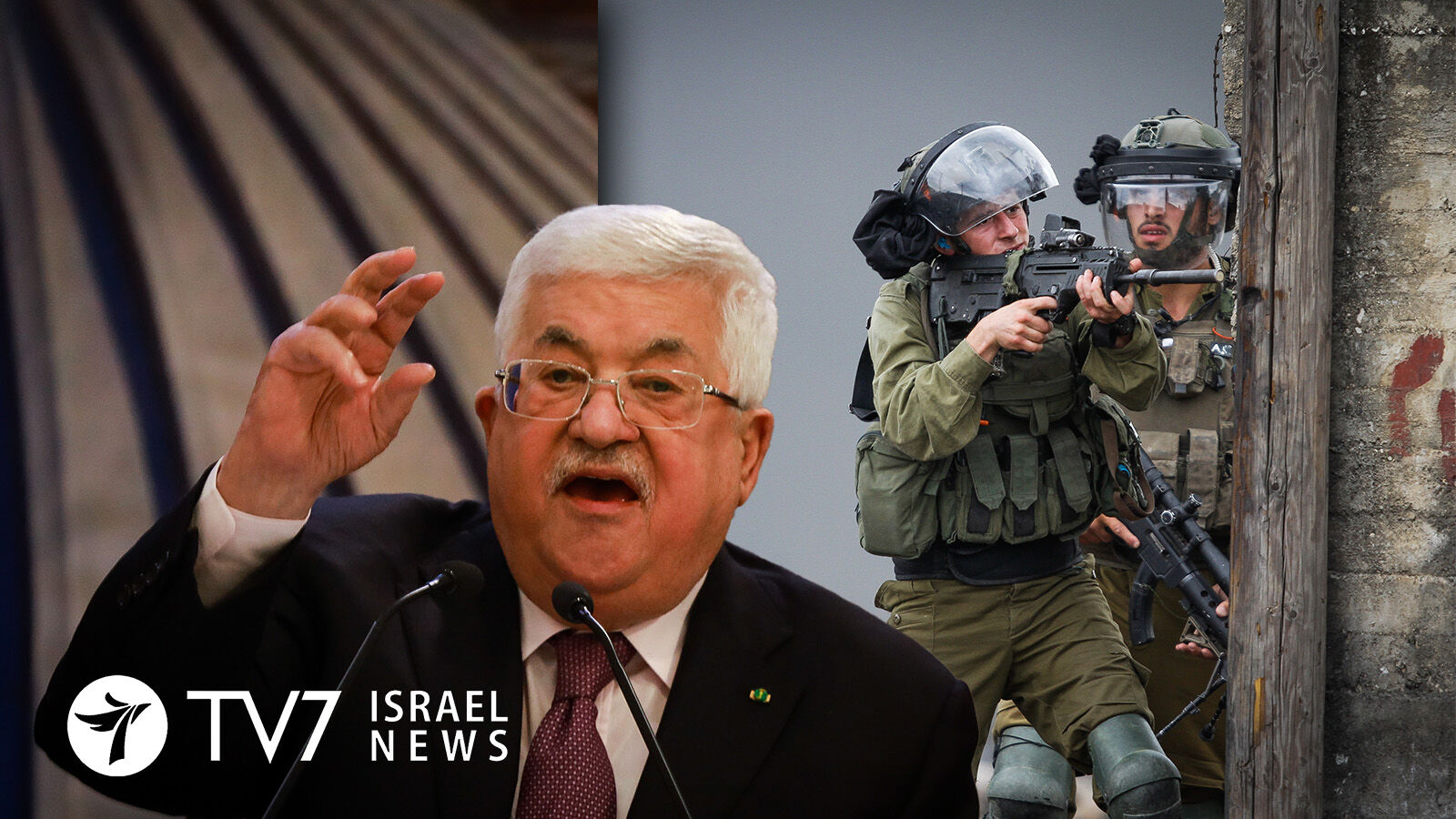Palestinian President Mahmoud Abbas leveled the accusation during a visit to the West Bank by United States Secretary of State Antony Blinken.
By Erin Viner
Following his visit with Israeli leaders, Secretary Blinken travelled to Ramallah to meet with Palestinian officials.
Ignoring a surge in Palestinian terror attacks against Israelis, Abbas said, “We affirm that the Israeli Government is responsible for what’s happening these days, because of its practices that undermine the Two-State Solution and violate the signed agreements, and because of the lack of international efforts to dismantle the occupation and the settlement regimes, and the failure to recognize the Palestinian state and its full membership in the United Nations.”
According to an official State Department transcript of the meeting, Abbas went on to assert, “the continued opposition to the efforts of the Palestinian people to defend their existence and their legitimate rights in international forums and courts, and to provide international protection – to provide international protection for our people – is a policy that encourages the Israeli occupier to commit more crimes and violate international law.”
Demanding “the complete cessation of unilateral Israeli actions, which violate the signed agreements and international law,” Abbas reiterated the Palestinians’ longstanding demand for Israel to end its “occupation.”
During the 1967 Six Day War, Israel captured parts of the West Bank and the eastern side of a then-divided Jerusalem from Jordan, as well as the Golan Heights from Syria and Gaza from Egypt. Israel cites biblical, historical and political links to the West Bank districts of Judea, Samaria and the Jordan Valley, as well as critical security interests. Nevertheless, most international countries view the building of Jewish communities on the conquered territories as “illegal settlements,” and an impediment to resolving the conflict with the Palestinians – who want the land for their aspired state.
Abbas told Blinken that the Palestinians “are now ready to work with the US administration and the international community to restore political dialogue in order to end the Israeli occupation of the land of the State of Palestine on the 1967 borders, with East Jerusalem as its capital.”
Secretary Blinken urged calm on both sides, saying “that’s the only way that we can create conditions in which people’s sense of security will start to improve.”
The visit by Washington’s top diplomat came in the wake of the deadliest attack in Jerusalem since 2008, when a Palestinian terrorist claimed seven lives in gun spree at a synagogue Friday night.
A day earlier, Israel carried out an unusually deep raid in the West Bank city of Jenin, killing 10 residents, most of them terrorist gunmen. Abbas’ Palestinian Authority (PA) responded by suspending its security cooperation agreement with Israel. The Jenin raid was part of Operation Waves Breaker launched by Jerusalem’s defense establishment last year to counter a wave of a deadly wave of Palestinian terror attacks against Israelis,
Appealing for an end to resurgent violence, Secretary Blinken reaffirmed US backing for a Two-State Solution to the decades-long conflict. He warned all parties against any action that could threaten a Two-State Solution, that envisions an independent Palestinian state alongside Israel. He went on to say that Palestinians are faced with a “shrinking horizon of hope” that needs to change.
“We’ve been clear that this includes things like settlement expansion, the legalization of outposts, demolitions and evictions, disruptions to the historic status of the holy sites, and of course incitement and acquiescence to violence,” said Blinken. Adding that he has heard “deep concern” about the current trajectory in both Israel and the West Bank – but also constructive ideas, he called on senior US officials to remain in the area to continue talks.
According to a senior State Department official, those who will be staying are Barbara Leaf, the top department official for the Middle East, and US Special Representative for Palestinian Affairs Hady Amr.
The last round of US-sponsored talks between Israel and the PA stalled in 2014.
The administration of President Joe Biden has said it would re-open a consulate for Palestinians that was closed by former President Donald Trump but has yet to say when or where it will be opened.
This was Blinken’s first visit since Prime Minister Netanyahu returned to power in December at the head of one of the most right-wing governments in Israel’s history, at a time of soaring tensions with the Palestinians.
While in Ramallah, Blinken announced the US will provide an extra $50 million in funding through the United Nations and that agreement had been reached on providing high speed 4G telecoms services to Palestinians. The PA is heavily dependent on foreign aid.
“For our part, we have been working to strengthen our own relationship with the Palestinian people and to help to improve their lives. We’re doing it in tangible ways, including our support to UNRWA – about $890 million for everything from food to vaccines to support for refugees, education, et cetera. And today I can announce that we’re going to be providing an additional $50 million to UNRWA. When President Biden visited in July, he also committed $100 million to the East Jerusalem Hospital Network. We reached an agreement as well to provide 4G communications to Palestinians, and we’re working to implement that,” Blinken said as documented in the State Department transcript.
Netanyahu has reinforced troops in the West Bank and promised measures to strengthen settlements there, but insists that Israel is not looking to escalate the situation.
Blinken also met with Israeli Defense Minister Yoav Gallant yesterday to discuss the situation in the West Bank, as well as joint cooperation to stop Iran from developing nuclear weapons.
